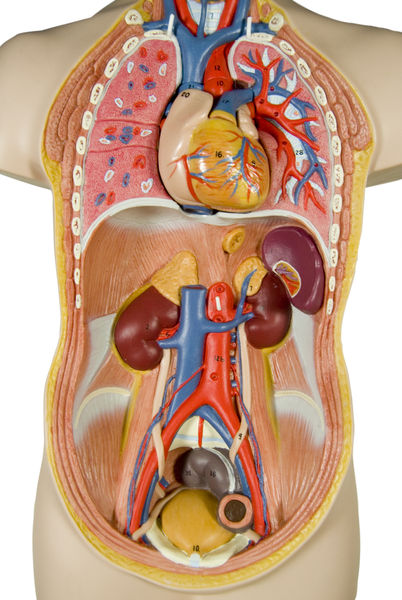Physiology

Physiology is the branch of biology that deals with the functions of living organisms and the parts of which they are made. This scientific discipline covers a wide variety of functions, ranging from the cellular and below to the interaction of organ systems that keep the most complex biological machines running.
Some of the questions that physiologists investigate include how plants grow, how bacteria divide, how food is processed in various organisms, and how thought processes occur in the brain. Investigations in physiology often lead to a better understanding of the origins of diseases.
History of physiology
Human (or mammalian) physiology is the oldest branch of this science. It dates back to at least 420 B.C. and the time of Hippocrates, the father of medicine. Modern physiology first appeared in the seventeenth century when scientific methods of observation and experimentation were used to study the movement of blood in the body. In 1929, American physiologist W. B. Cannon coined the term homeostasis to describe one of the most basic concerns of physiology: how the varied components of living things adjust to maintain a constant internal environment that makes possible optimal functioning.
A number of technological advances, ranging from the simple microscope to ultra-high-technology computerized scanning devices, contributed to the growth of physiology. No longer confined to investigating the functioning components of life that could be observed with the naked eye, physiologists began to delve into the most basic life-forms, like bacteria. They could also study organisms' basic molecular functions, such as the electrical potentials in cells that help control heart beat.
Branches of physiology
The branches of physiology are almost as varied as the countless life-forms that inhabit Earth. Viral physiology, for example, focuses on how viruses feed, grow, reproduce, and excrete by-products. However, the more complex an organism, the more avenues of research open to the physiologist. Human physiology, for instance, is concerned with the functioning of organs, like the heart and liver, and how the senses, such as sight and smell, work.
Physiologists also observe and analyze how certain body systems, like the circulatory, respiratory, and nervous systems, work independently and together to maintain life. This branch of physiology is known as comparative physiology. Ecological physiology, on the other hand, studies how animals developed or evolved specific biological mechanisms to cope with a particular environment. An example is the trait of dark skin, which provides protection against harmful rays of the Sun for humans who live in tropical climates. Cellular physiology, or cell biology, focuses on the structures and functions of the cell. Like cell biology, many branches of physiology are better known by other names, including biochemistry, biophysics, and endocrinology (the study of secreting tissues).
Words to Know
Homeostasis: The tendency of an organism to maintain constant internal conditions despite large changes in the external environment.
Negative feedback loop: A homeostatic mechanism that opposes or resists a change in the body's internal conditions.
Set point: The range of normal values of an organ or structure.
Homeostasis
A fundamental principle of physiology is homeostasis. Homeostasis is the tendency of an organism to maintain constant internal conditions despite large changes in the external environment. Most organisms can survive only if certain vital functions are maintained within a relatively narrow range. Such functions include blood pressure, body temperature, respiration rate, and blood glucose (sugar) levels. The normal range of values for any one of these functions is called a set point. Homeostasis insures that vital functions remain close to their set point in spite of any changes in external conditions.
For instance, suppose that a child leaves a warm house to go out-side to play when the temperature is 32°F (0°C). When that happens, the homeostatic mechanisms in the child's body begin to make adjustments for this change in external temperature. It "turns on" chemical reactions inside the body that result in the generation of body heat, thereby maintaining its internal temperature at constant levels.
Negative feedback. The primary mechanism by which homeostasis occurs in an organism is called negative feedback. The term negative feedback means that any change that takes place is resisted by the body. In the example above, for instance, a decrease in the external temperature causes biological and chemical changes that produce an increase in internal temperatures. Or, suppose that a person suffers an accident and his or her blood pressure begins to drop. Systems within the body then respond to that emergency by producing an increase in blood pressure.
[ See also Brain ; Circulatory system ; Disease ; Nervous system ; Reproductive system ]